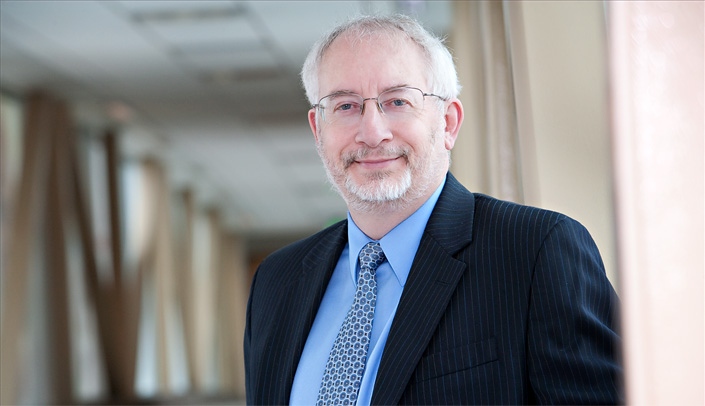Saturday, May 9, marks the day in which the UNMC College of Medicine celebrates the accomplishments of the class of 2020 at our annual convocation and hooding ceremonies that date back to the origin of the college.
This year’s celebration deviates markedly from tradition, as the COVID-19 pandemic has caused us to move from a gathering of fellow students, family members, friends and faculty to a virtual streaming format. Although the ability to shake hands and personally congratulate each graduate will be absent this year, the pride that we have in the accomplishments of the class of 2020, and our best wishes for their future personal and professional success, is in no way diminished.
This is the final class that has completed their education under the “old” curriculum, and thus in some way they close the book on an important chapter of the college’s history. But as they perhaps are a product of a more traditional approach to medical education than will be the case going forward, they are entering residency training and their careers as physicians at a time that is truly unique in our history.
The COVID-19 pandemic has few comparators in modern history — the influenza pandemic of 1918-20, polio in the 1950s, and the first decade of the emergence of HIV perhaps come closest. Each of these reflect the emergence of worldwide infectious diseases for which there was no pathogen-specific treatment and resulted in much morbidity, mortality and fear across the globe. “Old school” public health measures were all that were available to limit diseases, and physicians were left with trying to treat the consequences of each of the infectious diseases as best they could. Fortunately, vaccine and drug development eventually allowed for more specific approaches to prevention and treatment.
The physicians of the time stepped up to confront the challenges of each of those pandemics, sometimes at personal risk, to provide hope and comfort to the afflicted, as well as their families and friends. I was an infectious disease fellow and young junior faculty member at the time of the emergence of the HIV/AIDS epidemic in the 1980s. At that time, we had no effective therapy to offer for the underlying cause of the recurrent, life-threatening infections and malignancies being encountered by mostly young, previously healthy individuals, many of whom also found themselves socially ostracized due to their sexual preference. It was also several years into the identification of AIDS before the etiologic agent and better understanding of its mechanism(s) of transmission were identified.
In those early years, the ability to offer compassion and support was often more important to our patients than the limited therapeutic armamentarium we had at our disposal, awaiting more effective drugs and a vaccine. In the case of HIV/AIDS, the latter has continued to remain beyond our reach, but fortunately the development of effective drugs against the virus has rendered HIV infection a chronic disease with which patients can live for many decades.
Just as the physicians who preceded them confronted their own pandemic, I have great confidence that the class of 2020 and the physicians of their generation will step up and successfully render the COVID-19 pandemic a page in history. Our graduates still have many things to learn through the residency and fellowship training programs to which they now embark. Nevertheless, I know that their education and clinical training at UNMC has prepared them well — as clinicians, scientists, epidemiologists and humanistic physicians. Although we are not able to tell you this in person, as we would like, on behalf of the faculty and staff of the College of Medicine, we say:
Congratulations and best of success! We are very proud of you and are expecting each of you to become great physicians.
